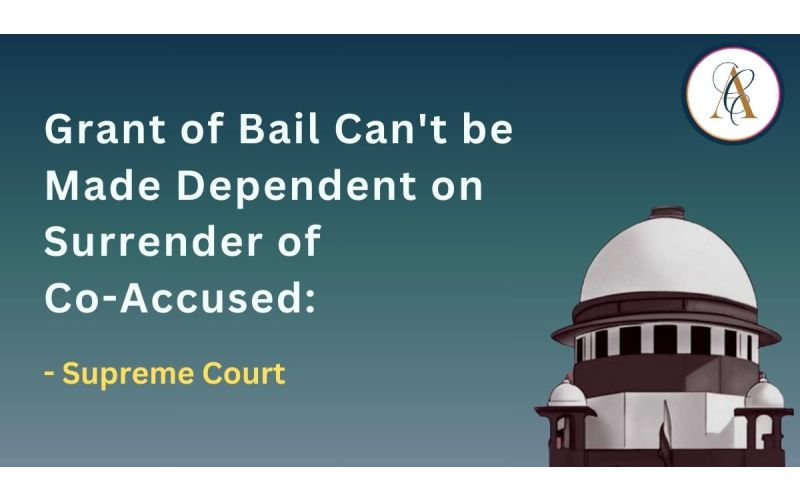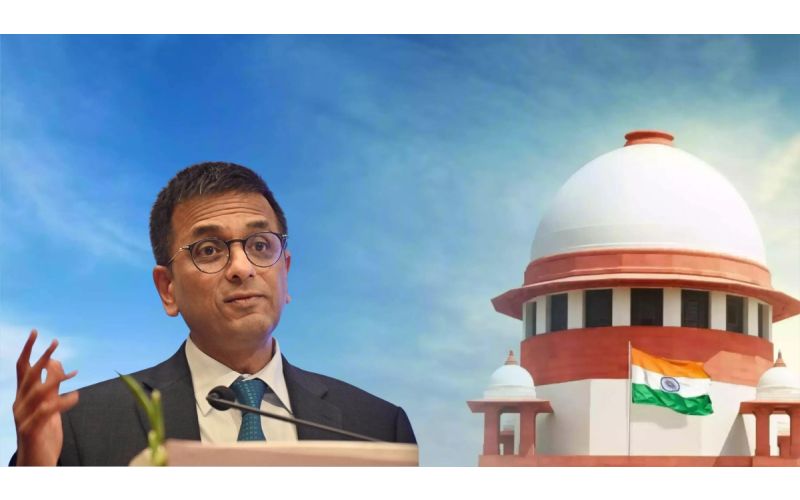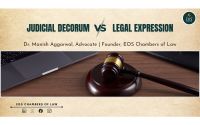Supreme Court Refuses To Interfere With HC Order Allowing De

Supreme Court Refuses To Interfere With HC Order Allowing Delhi University To Use CLAT Score For 5 Yr LLB Admissions In 2023-24
The Supreme Court on Monday(September 25) refused to interfere with the interim order passed by the Delhi High Court allowing the University of Delhi to admit students in the 5 year LL.B course of its Faculty of Law on the basis of the Common Law Admission Test (CLAT).
Noting that the classes have already commenced, a bench led by Chief Justice of India DY Chandrachud dismissed the special leave petition filed by a student, who demanded that the admission should be on the basis of the Common University Entrance Test (CUET) held by the University for other courses. CLAT is conducted by the Consortium of National Law Universities.
"This is an interlocutory order, we cannot interfere. You can argue in the High court. HC will consider it for the next year. For this year, HC thought let CLAT reign", CJI said.
On September 18, a division bench of Chief Justice Satish Chandra Sharma and Justice Sanjeev Narula passed the interim order permitting the Delhi University to offer admissions in its newly introduced five-year integrated law courses on the basis of CLAT-UG 2023 score, only for the current academic year. The court was hearing a PIL challenging Delhi University’s decision to offer the said admissions solely on the basis of CLAT-UG 2023 score, instead of CUET.
The bench observed that the matter requires consideration and listed it for hearing for a broader question i.e. whether CUET should be mandatory for admissions in all Central Universities or if such varsities are at a liberty to admit students through other examinations conducted by other specialized agencies.
“However, for the present academic year 2023-24, as classes have already started, by way of interim relief, DU is permitted to admit students to its Five Year Integrated Law Course based on CLAT UG 2023,” the High Court ordered.
Post Categories
Featured Posts
Latest Posts
Latest Posts

Grant Of Bail Can't Be Made Dependent On Surrender Of Co-Accused Supreme Court...
A Division Bench of the Supreme Court while allowing a bail plea held that the grant of bail to a co-accused person cannot be contingent on the surrender of another accused who is also pertinently the main accused in the...

CJI DY Chandrachud Launches e-DHCR Portal calls it 'Powerful Platform' For Digital Publication of...
Chief Justice of India Justice DY Chandrachud on Monday launched the e-DHCR portal a user friendly official platform for reporting the judgments of Delhi High Court nbsp CJI Chandrachud said that the initiative marks a ldquo profound shift rdquo in...

Motor Accident Claims No Right To Recovery For Insurer Merely Because Vehicle Owner Didn't...
The Supreme Court on Monday th October held that an insurance company cannot claim that it is not liable to pay compensation in a motor vehicle accident claim just because the vehicle owner did not verify the genuineness of the...

SC Issues Notice On PIL Seeking Action Against Doctors Who Do Not Prescribe Generic...
The plea said that affordability of medicines is a vital factor that contributes to effective healthcare delivery and the realization of the lsquo right to health rsquo The Supreme Court on Friday issued notice on a PIL seeking disciplinary actions...

Prashant Mishra KV Viswanathan Take Oath As Supreme Court Judges...
By India Today News Desk Justice Prashant Kumar Mishra and senior advocate KV Viswanathan were sworn-in as Supreme Court judges on Friday a day after the Central government nbsp cleared the appointment of the advocates New Union Law Minister Arjun...

New Training Programme For New Lawyers By Chief Justice Of India DY CHANDRACHUD...
lsquo Judges can rsquo t burden lawyers due to uneasiness with technology rsquo CJI Chandrachud- CJI Chandrachud appealed to judges to continue hybrid hearings saying that this was not just meant for the Covid- pandemic period Chief Justice of India...

Speak With Our
Get a Appointment
















